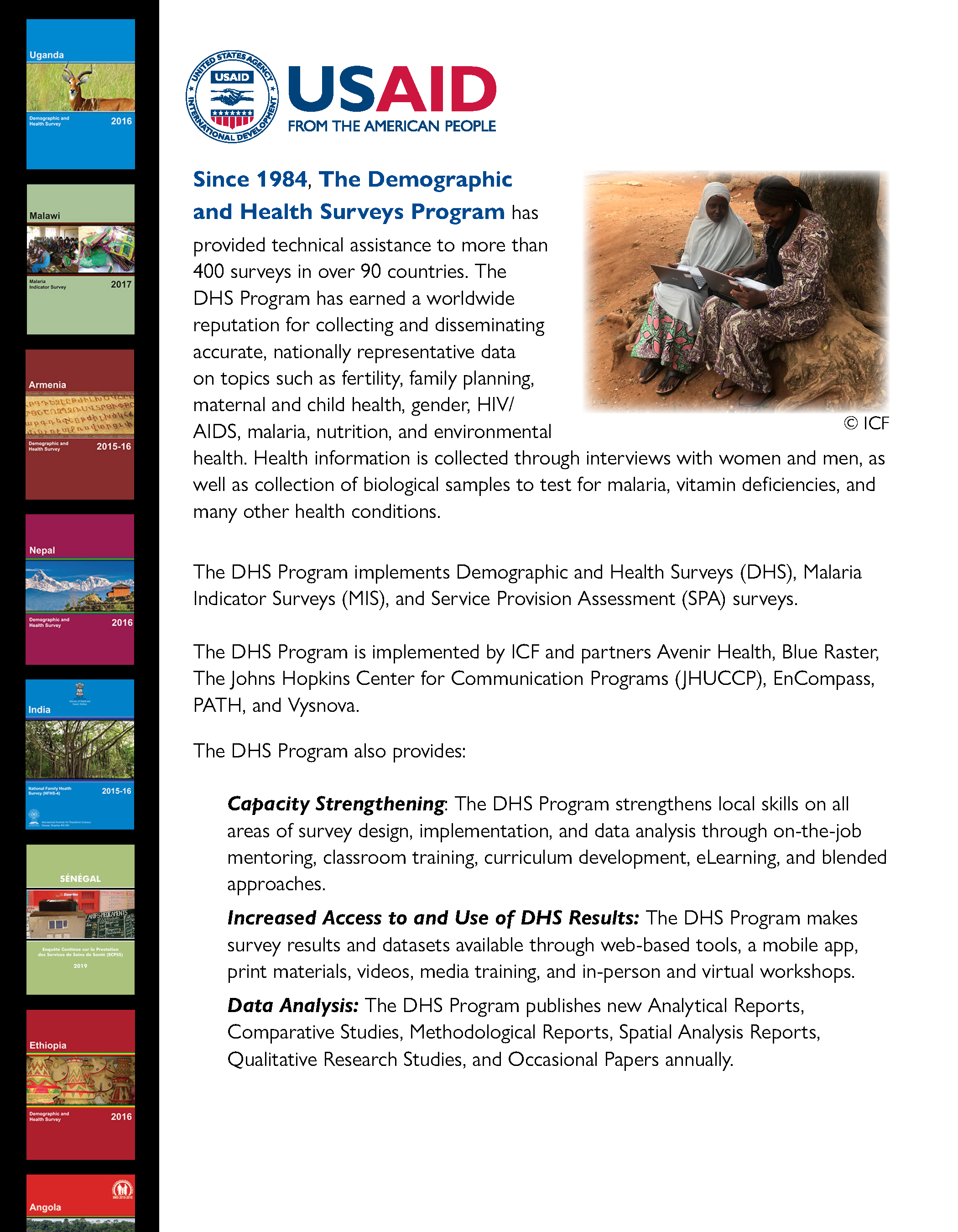Press Releases
Many Tanzanian children not sleeping under insecticide-treated nets
DAR ES SALAAM, Tanzania. Only 16 percent of children under age five slept under an insecticide-treated net (ITN) the night before their households were interviewed, according to the newly released 2004-05 Tanzania Demographic and Health Survey (TDHS). Health officials recommend that all children under age 5 and pregnant women sleep under ITNs to prevent malaria, which is the leading cause of death for children and adults in this east African country. However, in Tanzania, only 16 percent of young children and 16 percent of pregnant women slept under an ITN the night before the survey. A little more than 30 percent of children and pregnant women slept under any net the night before the survey.
Ownership of Nets: Almost half of households in urban areas in Tanzania own at least one ITN. But only 14 percent of rural households own an ITN, even though malaria is much more common in rural areas than urban.
Prevention: Almost 60 percent of pregnant women took antimalarial drugs, but less than one quarter of pregnant women followed the full prevention recommendation. Women should receive two doses of Sulphadozine Pyrimethanmine (SP) for presumptive treatment of malaria. The first dose of 3 tablets of SP is administered between week 23 and 24 and the second dose of 3 SP tablets is administered between week 28 and 32 of pregnancy. About half of pregnant women received at least one dose of SP during an antenatal care visit.
Treatment: Almost 60 percent of children with fever received an antimalarial drug. However, only 24 percent received SP, the recommended drug at the time of the survey. In addition, treatment of malaria in children was best in the wealthiest households and among children whose mothers had at least a secondary education.
National Malaria Policy: The current National Malaria Policy and Strategy aims to increase use of ITNs and improve treatment for malaria as well as preventive treatment during pregnancy. In 2005, The Ministry of Health announced a new treatment recommendation: artemisinin-based combination therapy (ACT). The National Malaria Policy and Strategy programs are receiving United States assistance (including funding for IRS, nets and ACT) through the President’s Malaria Initiative. Tanzania is among the first three countries chosen to receive technical support and funding under the PMI.
The 2004-05 TDHS is based on interviews with over 10,000 women and over 2,600 men. The survey was carried out by the National Bureau of Statistics and funded by a variety of donors through the pooled fund of the Poverty Eradication Division (PED) of the Vice President’s Office. Technical assistance was provided by U.S.-based ORC Macro and funded by the United States Agency for International Development (USAID). The 2004-05 TDHS is the sixth in a series of national surveys carried out through the MEASURE DHS project.
About the MEASURE DHS project: The Demographic and Health Surveys (DHS) project is a global data collection effort funded by USAID and carried out by ORC Macro and in-country implementing organizations. These nationally representative household surveys collect data on demographic patterns, fertility, health, and nutrition for policy and program planning.
